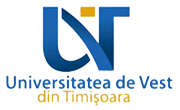Aim
SYNASC aims to stimulate the interaction between the two scientific communities of symbolic and numeric computing and to exhibit interesting applications of the areas both in theory and in practice. The choice of the topic is motivated by the belief of the organizers that the dialogue between the two communities is very necessary for accelerating the progress in making the computer a truly intelligent aid for mathematicians and engineers.
Topics
* Symbolic Computation
+ computer algebra
+ symbolic techniques applied to numerics
+ hybrid symbolic and numeric algorithms
+ numerics and symbolics for geometry
+ programming with constraints, narrowing
* Logic and Programming
+ automatic reasoning
+ formal system verification
+ formal verification and synthesis
+ software quality assessment
+ static analysis
+ timing analysis
* Artificial Intelligence
+ methods for hard computational problems
+ intelligent systems for scientific computing
+ agent-based complex systems modeling and development
+ scientific knowledge management
+ computational intelligence
+ machine learning
+ recommender and expert systems for scientific computing
+ data mining and web mining
+ natural language processing
+ uncertain reasoning in scientific computing
+ intelligent hybrid systems
* Numerical Computing
+ iterative approximation of fixed points
+ solving systems of nonlinear equations
+ numerical and symbolic algorithms for differential equations
+ numerical and symbolic algorithms for optimization
+ parallel algorithms for numerical computing
+ scientific visualization and image processing
* Distributed Computing
+ parallel, distributed and web computing for symbolics and numerics
+ cloud computing
+ grid middleware and applications
+ agent-based grid computing
+ grid services
+ workflow management
* Advances in the Theory of Computing
+ Data structures and algorithms
+ Combinatorial Optimization
+ Formal languages and Combinatorics on Words
+ Graph-theoretic and Combinatorial methods in Computer Science
+ Algorithmic paradigms, including distributed, online, approximation, probabilistic, game-theoretic algorithms
+ Computational Complexity Theory, including structural complexity, boolean complexity, communication complexity, average-case complexity, derandomization and property testing
+ Logical approaches to complexity, including finite model theory
+ Algorithmic and computational learning theory
+ Aspects of computability theory, including computability in analysis and algorithmic information theory
+ Proof complexity
+ Computational social choice and game theory
+ New computational paradigms: CNN computing, quantum, holographic and other non-standard approaches to Computability
+ Randomized methods, random graphs, threshold phenomena and typical-case complexity
+ Automata theory and other formal models, particularly in relation to formal verification methods such as model checking and runtime verification
+ Applications of theory, including wireless and sensor networks, computational biology and computational economics
+ Experimental algorithmics
This list is not intended to be exhaustive.
